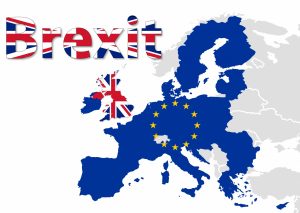 Last week, British voters surprised the world with their decision to leave the European Union. What started as a conciliatory election promise by Prime Minister David Cameron quickly grew into a close and divisive campaign. Deepening the shock of the leave win, Cameron announced his resignation the morning after the referendum. To his successor he leaves the burden of invoking Article 50 which will begin the two-year process of Britain’s extrication from the EU.
Last week, British voters surprised the world with their decision to leave the European Union. What started as a conciliatory election promise by Prime Minister David Cameron quickly grew into a close and divisive campaign. Deepening the shock of the leave win, Cameron announced his resignation the morning after the referendum. To his successor he leaves the burden of invoking Article 50 which will begin the two-year process of Britain’s extrication from the EU.
The short-term economic ramifications were immediate. The pound dropped 10% when markets opened on Friday, hitting 31-year lows against the US dollar overall. On Monday, the S&P downgraded Britain’s AAA credit rating. Markets also tumbled on Friday, with the S&P losing 3.6% and the Dow 3.4%. Political shifts will take longer to estimate, though jockeying has begun for Cameron’s seat, with former London Mayor Boris Johnson, one of the leaders of the Leave campaign, as the current favorite. Rumblings that a second Scottish referendum for independence will be held and stability in Northern Ireland is threatened as leaders there have indicated similar discussions.
Brexit and Women
Longer-term fallout is murky and there has even been speculation that the UK may not invoke Article 50 at all. One conversation that was overshadowed in the campaign was that of gender equality. How will women fare as the months and years ahead unfold? It turns out that the EU affirmed and enforced woman-friendly policies. The question is whether the British government and the conservative nature of the British themselves will uphold these benefits. In an article written prior to the referendum vote, journalist Caroline Criado Perez detailed the ways in which being part of the EU benefits women. One of the most significant requirements established by the EU was equal pay for work of equal value. While the UK passed the Equal Pay Act in 1970, that law only covered equal pay for literally the same job. Perez uses the example of male and female cleaners. Women tend to clean offices and men tend to clean streets. Under the UK law, they wouldn’t be entitled to equal pay. The EU, through the Treaty of Rome, forced the UK to adhere to equal pay for work of equal value.
With respect to maternity leave, the UK did have policies in place, but again, the fine print made it difficult for many people to use it. Under the UK laws, the woman had to be a full-time, permanent employee for a minimum of two years. The EU made maternity leave universal and also implemented paid time off for pre-natal medical appointments, and paid time off for fathers to care for sick children.
Finally, the UK passed legislation in the 1970s making it illegal for them to discriminate against pregnant women in the workplace. Again, loopholes made this difficult to police and women in the armed forces continued to be fired until 1990 when two women brought suit against the Ministry of Defense and the government’s noncompliance with the EU directive came to light.
The implication here is that without EU mandates, the UK on its own would likely pay lip service to women’s rights while continuing the status quo. Britain is still a long way from entangling itself from the EU, and a heightened awareness of such issues can only benefit women. The complication comes when the UK will need to police itself.





